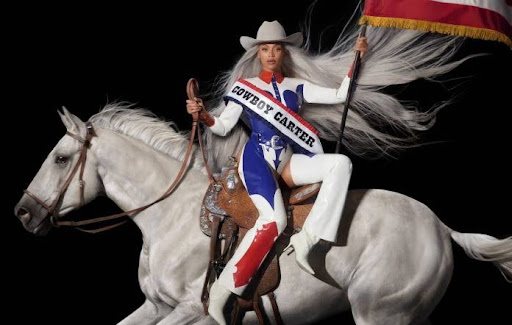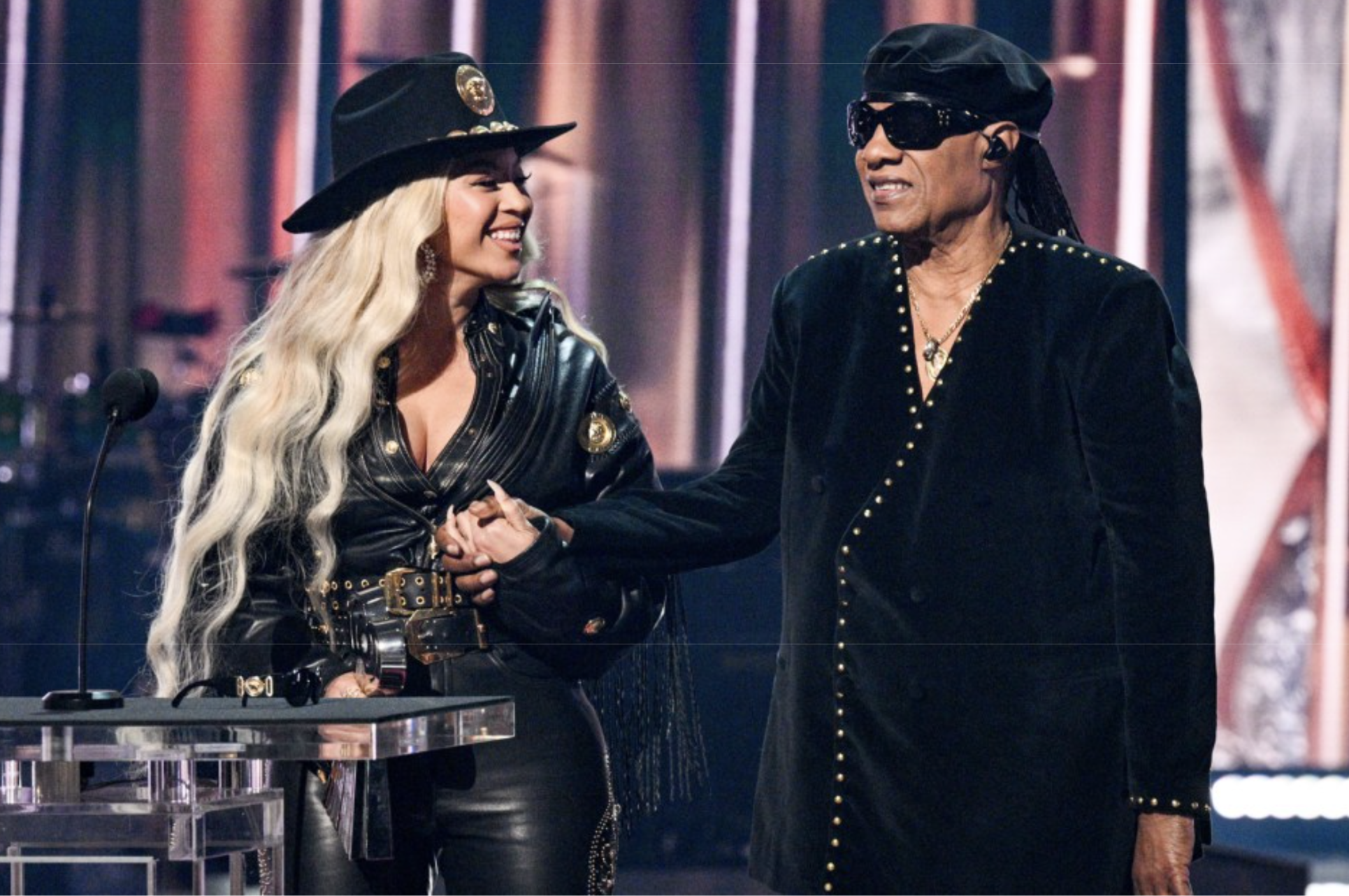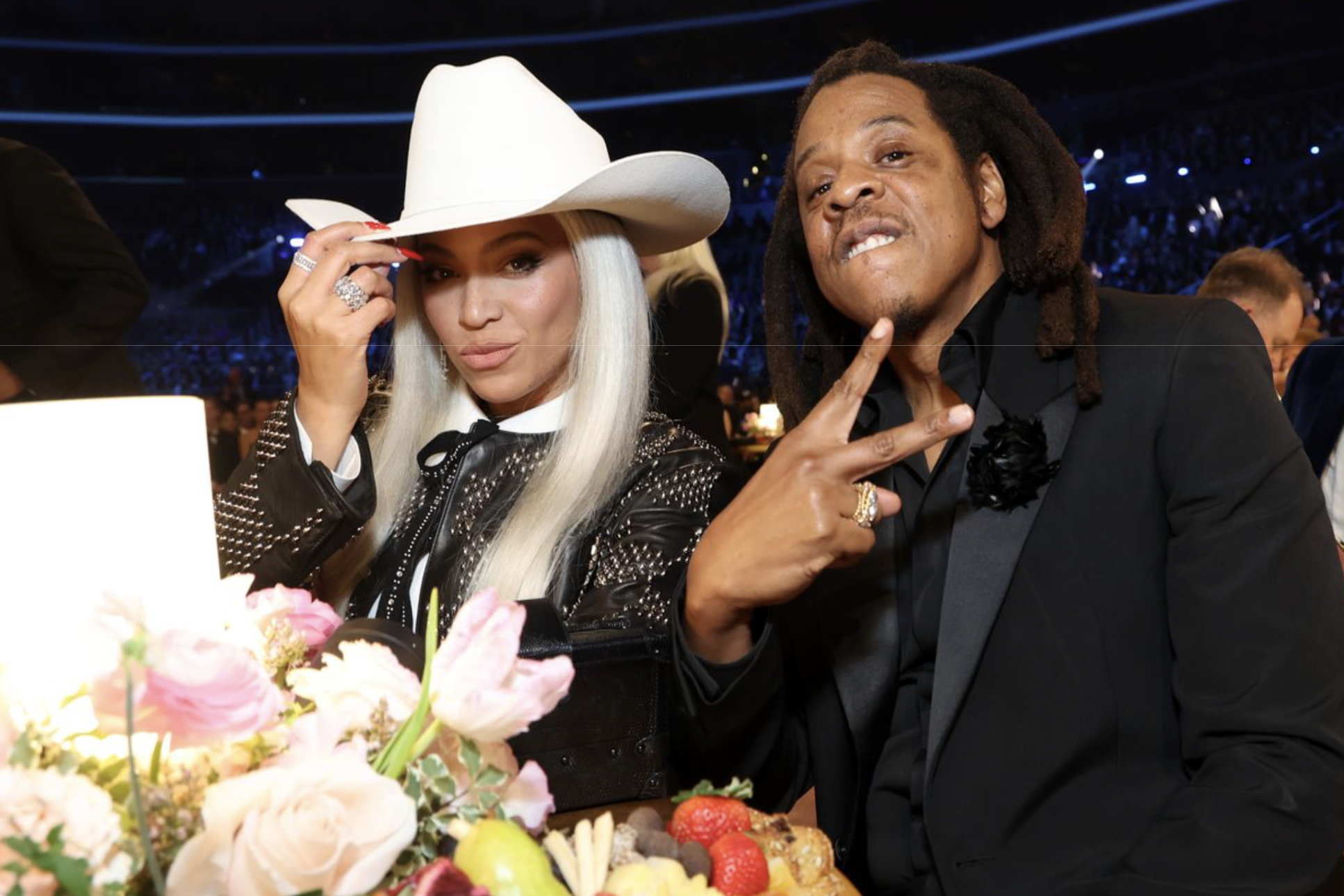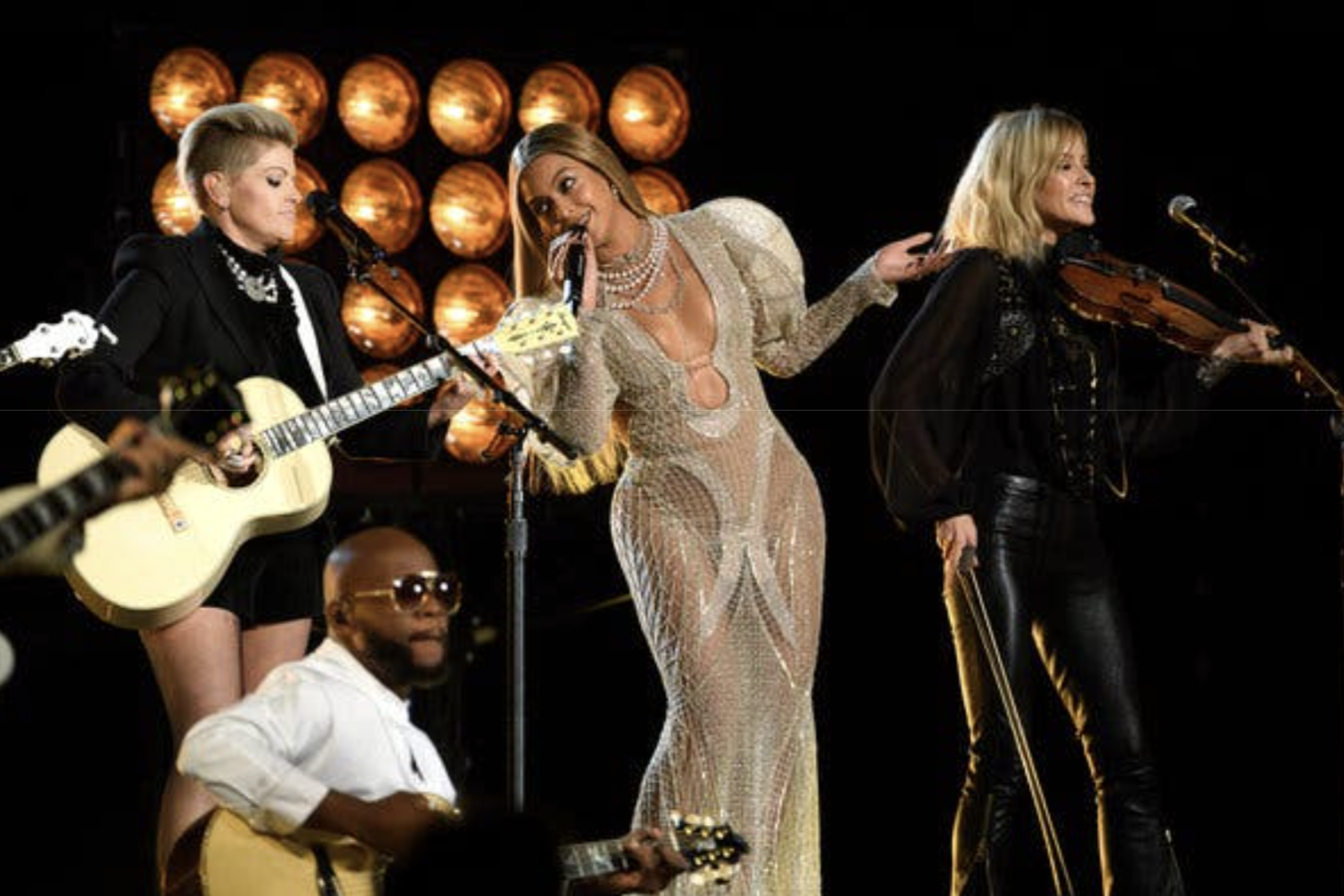
Beyoncé dropped her Act II to 2022’s critically acclaimed album Renaissance, Cowboy Carter on March 29th. She announced the album after Usher’s electrifying Super Bowl Halftime show via a Verizon commercial,where she attempted to break the internet. The singles Texas Hold ‘Em and Sixteen Carriages dropped soon after.
This surprised some, but according to ABC News, it shouldn’t. After all, Beyoncé is from Houston. She performed her song Daddy Lessons at the 2016 CMA’s with the country group the Chicks, released an Ivy Park x Adidas Rodeo collection that draws inspiration from Americana and performed at the Houston Rodeo for years, retrieved from USA Today.

However, as Queen Bey said on Instagram, Cowboy Carter “ain’t a country album. This is a “Beyoncé” album.” Cowboy Carter is so much more than just one genre, but rather a love letter to Southern music and culture. On the album, Beyoncé frequently references Americana iconography like mechanical bulls from “Sweet / Honey / Buckiin’”, the classic denim staple on “Levii’s Jeans” or the American flag-inspired chaps and pageant sash she wears on the album cover. She’s fully cognizant of her place as a Black woman in a country in which Blackness hasn’t always been accepted. As she says on “Ya Ya”, whole lotta red in that white and blue, huh/ History can’t be erased.
Beyoncé procured the acceptance of some of country music’s royalty, including Dolly Parton, Willy Nelson, and Linda Martell. Martell was the first commercially successful Black female country artist, but her country career stalled after leaving her unsupportive management, per CNN. Even though it’s been decades since Martell was heckled with racial epithets, Beyoncé’s success wasn’t guaranteed in this genre when she released this album. Since the release, her success is clear. She is the first Black woman ever to top the Billboard country Albums chart, according to CBS.
Additionally, she covers Blackbird by the Beatles with Black country singers Tanner Adell, Brittney Spencer, Tiera Kennedy, and Reyna Roberts, giving greater visibility to the Black women of country. According to the BBC, Blackbird was originally written to address the civil rights movement in the late 1960s, particularly the struggles of the Little Rock Nine. She also puts her spin on classic Jolene, threatening instead of pleading with the eponymous man-taker, with Stevie Wonder playing the harmonica, retrieved from Vox. Beyoncé has duets with both Miley Cyrus and Post Malone, white artists who embraced hip-hop music and aesthetics before pivoting to country.

Beyoncé celebrating her Blackness and country music at the same time is a radical thing in the country music industry. The release of Cowboy Carter upended traditional stereotypes of country singers, who tend to be white, and conservative, both of which Beyoncé is decidedly not. Country has had its roots in Black America since the start; one of the most popular country instruments, the banjo, essentially came to America with enslaved people.
The lack of representation for Black artists has been institutional. Starting in the 1920’s, there were segregated “hillbilly” (which grew into country music) for white audiences and “race records” (which transformed into blues, R&B and gospel), according to NPR. However, Black artists often inspired white artists and even made some hillbilly music themselves.
According to a study, “Black women have not had enough airplay to reach the Top 20 of the chart, which limits the opportunities available to them within the broader industry”. Additionally, artists of color have only received 2.3% of country music airplay, making people of color severely underrepresented within the commercial country music industry. Shaboozey, a collaborator on Cowboy Carter, who is known for mixing country and rap said, “To see her [Beyoncé] just kind of coming in here has been honestly beneficial to me and plenty of other artists.”, retrieved from Billboard.

However, Black artists haven’t been dissuaded by historical shortcomings in acceptance. Charley Pride was the first Black artist to make it into the Country Music Hall of Fame in 2000, but refused to only be defined by his Blackness. Ray Charles pioneered blending country with other genres, including R&B. Mickey Guyton, currently the only woman signed to a major country music label, released a song about her encounters with racial inequality amid the protests after George Floyd’s murder. Streaming numbers indicate that Beyoncé’s entry into the genre is benefiting other Black artists.
It’s unknown how much of an impact Cowboy Carter will have on bringing diversity to the country genre, and it’s known that Country music has broader inclusivity issues. Male singers often receive greater popularity and more radio airplay then female singers. Maren Morris, a Grammy-award winning artist has expressed a desire to leave the genre, according to the LA Times. And, obviously, a genre with little Black representation will foster anti-Black bigotry.
Even a superstar like Beyoncé can’t entirely avoid racist backlash from Nashville. In 2016, she performed her song “Daddy Lessons” with the Chicks (formerly known as the Dixie Chicks). However, she received racist booing during her performance. Fans believe that this was the thing Beyonce mentioned on her Instagram that inspired her to look more deeply into country music, saying the album was “born out of an experience that I had years ago where I did not feel welcomed”. Additionally, “Daddy Lessons” was not accepted by the Recording Academy (which is the Grammy voting body) for any solo country music awards according to AP News.

Beyoncé’s pivot to Cowboy Culture could also be evidence of a wider societal shift towards country aesthetics with the release of shows like Yellowstone and Louis Vuitton’s most recent Country and Indigenous culture inspired collection. LV’s head menswear designer, Pharell, is even credited on Cowboy Carter.
In this trilogy of albums that Cowboy Carter is the second of, it is clear that Beyoncé is focusing on legacy and bringing greater visibility to neglected genres of music. In Renaissance, she pays homage to ballroom culture, and with the release of Cowboy Carter, she is not just bringing greater attention to neglected icons like Linda Martell, but Beyoncé gives house music greater visibility while paying homage to the people who influenced her (like Grace Jones and Dolly Parton) and giving younger, genre-bending artists like Shaboozey a bigger platform. Hopefully, Cowboy Carter will bring more commercial success for Country artists of color.


